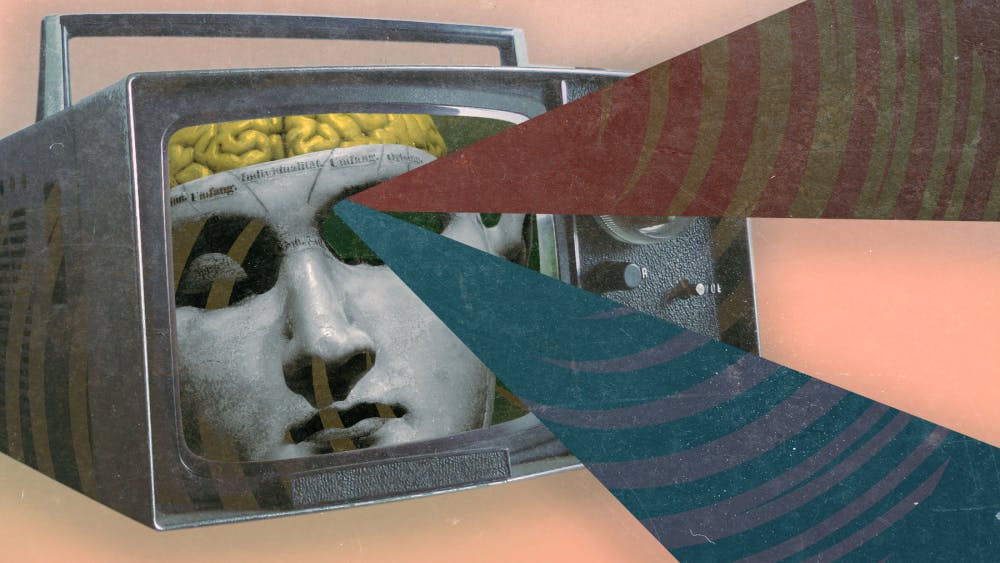Early on in director Chloé Zhao’s latest film, an Amazon warehouse worker shows off her tattoos to the movie’s protagonist, Fern (Frances McDormand). Morrissey’s lyrics are inked all over her body, and she makes a point to read one of her favorites out loud: “Home, is it just a word? Or is it something you carry within you?” These questions lie at the core of “Nomadland,” a meandering, empathetic exploration of being and belonging in post-recession America.
Based on Jessica Bruder’s eponymous non-fiction book, “Nomadland” introduces viewers to Fern, who along with her late husband, lost her job in the aftermath of a 2011 mine closure in Empire, Nevada. With no options left, Fern lives in her van and, with some encouragement from a friend, becomes part of a community of “workampers” — a group of older Americans who travel around the country in search of work, living out of campers, RVs and vans. Wandering from town to town, bouncing from job to job, they are nomads in every sense of the word.
Though more tender than biting, “Nomadland” is nevertheless unabashed in its critique of capitalism and the American dream. In one scene, Fern goes to an employment office and asks for a job, only to be told there were no openings for her. This complicates the steadfast American mentality of pulling oneself up by the bootstraps. Fern doesn’t want handouts. She’s hard-working and strong-willed. Rather than indicting her for any sort of personal failing that keeps her from steady employment, Zhao rightfully points her finger at the institutions that continually fail Americans.
The real-life de facto leader of the “workampers,” Bob (Bob Wells), underscores these ideas in a speech he delivers to his community near the outset of the film. He denounces the “tyranny of the dollar and the marketplace” and recounts how the current economic system works Americans to death and then puts them out to pasture. This group of individuals, he explains, takes care of one another in these pastures. Throughout the film, “workampers” make good on this assertion, giving Fern rides into town for a flat tire and aiding her in finding places to park overnight. Though a nomadic lifestyle may sound lonelier than the alternative, “Nomadland” suggests that we are less alone when we rely on each other, rather than on faceless institutions, for help.
Zhao employs several talented non-actors including the real-life “workamper” Linda May, who Bruder centers her book around, but “Nomadland” rests on the shoulders of Frances McDormand. The veteran actress, who built a career on embodying quintessentially American characters like police chief Marge Gunderson in “Fargo” (1996), is the perfect choice for the indomitable spirit of Fern. McDormand is frequently shot in close-up, her expression weary but her eyes still bright and determined. She emanates both a warmth and a roughness in every exchange, perfectly capturing a character weathered by her environment just like the rocks that dot the film’s rugged desert landscapes.

The only thing capable of outshining McDormand’s humanistic performance is cinematographer Joshua James Richards’ contemplative camerawork. Each shot emphasizes the movie’s themes of community and independence. When Fern is alone, Richards films her in extreme long shots. Static, she stands dwarfed by landmarks of both the natural and tourist variety. On the other hand, Fern’s interactions with other nomads reinvigorate both her and the camera. A long tracking shot follows her on her first visit to a campground, and the camera moves with her and her newfound friends when they dance to the blues in bars.
In one scene, Fern runs into old acquaintances in a store. When they express concern for her well-being, she assures them, “I’m not homeless, I’m just houseless.” This concept is central to “Nomadland.” We don’t need to live in a house to feel at home in this world. As the film’s beginning suggests, home is indeed a place we carry within us. It’s the people we meet, the places we go and the moments we experience. Fern sets out on the road to survive, but in the process, she finds something greater than mere survival: she finds home.








